How to Book a Safari in Kenya: Your Ultimate Adventure Awaits
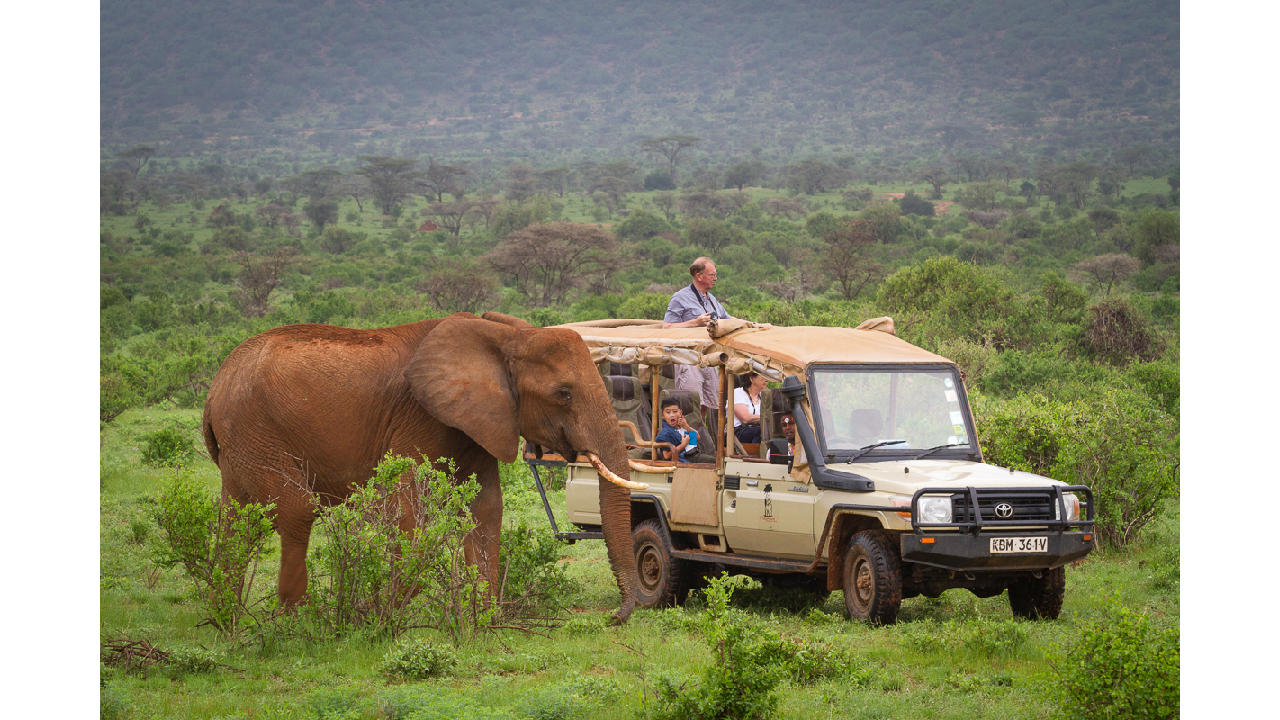
I. Introduction
A. Brief overview of Kenya’s renowned safari destinations
Kenya is a paradise for safari enthusiasts, offering a rich tapestry of diverse ecosystems and wildlife. From vast savannahs to lush forests and stunning coastlines, the country boasts a myriad of safari destinations that cater to every adventurer’s taste. Some of the renowned safari destinations in Kenya include:
-
Masai Mara National Reserve:
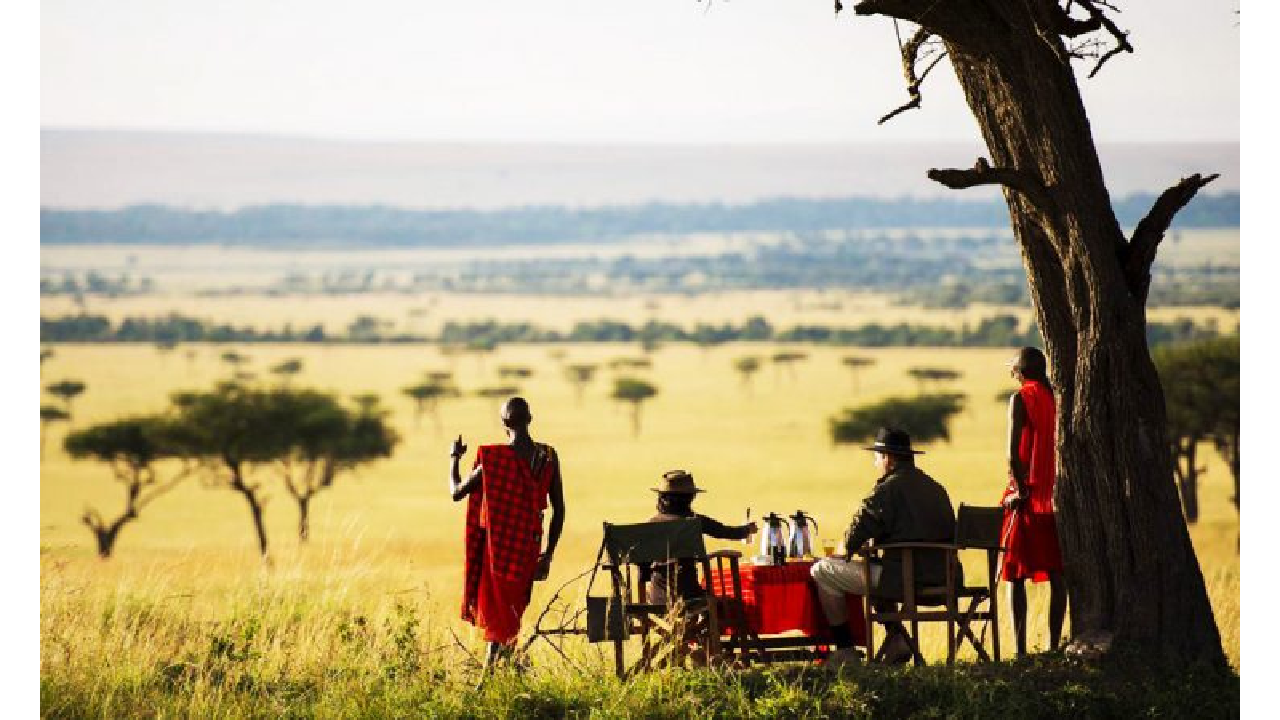
How to Book a Safari in Kenya - Known for its breathtaking landscapes and the annual wildebeest migration, Masai Mara is one of Africa’s most iconic safari destinations.
- Home to the “Big Five” (lion, elephant, buffalo, leopard, and rhinoceros) and countless other species of wildlife, Masai Mara offers unparalleled game viewing experiences.
-
Amboseli National Park:
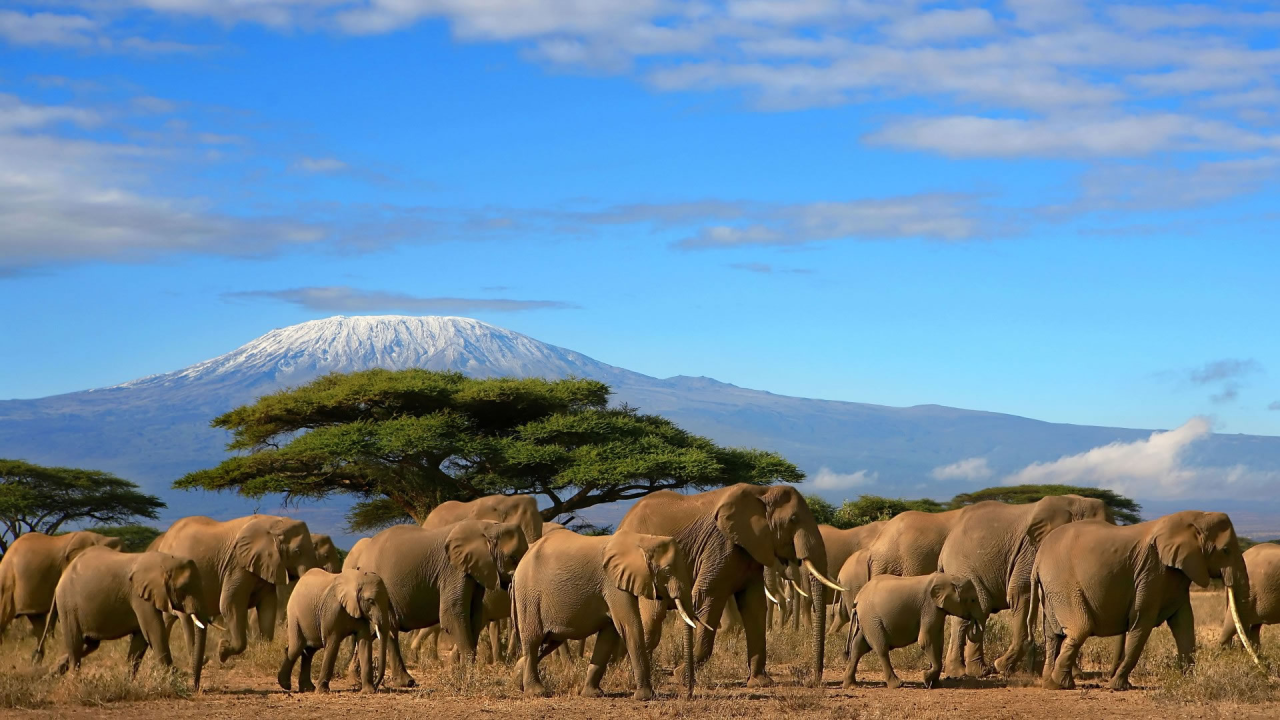
How to Book a Safari in Kenya - Famous for its stunning views of Mount Kilimanjaro, Africa’s highest peak, Amboseli National Park provides a unique backdrop for safari adventures.
- Renowned for its large herds of elephants and diverse birdlife, Amboseli offers fantastic opportunities for wildlife photography and cultural interactions with the Maasai community.
-
Tsavo National Parks (East and West):
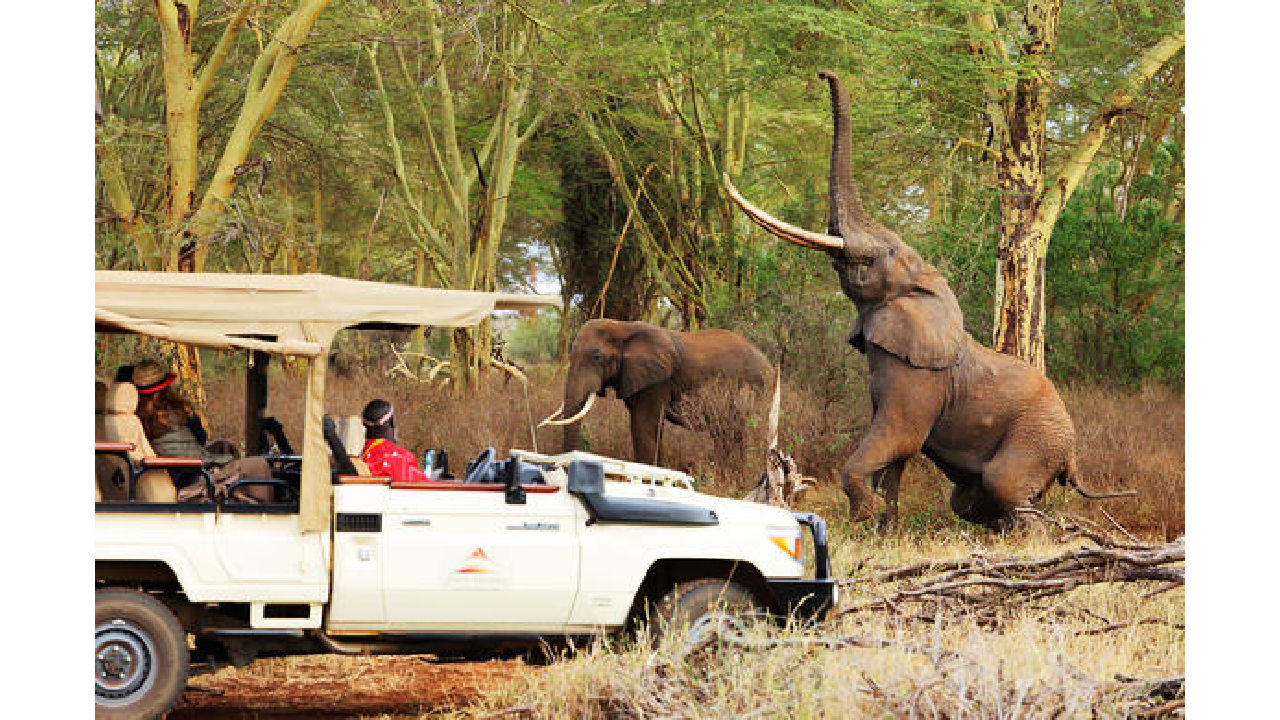
How to Book a Safari in Kenya - As Kenya’s largest national park, Tsavo is divided into two separate parks, each offering distinct landscapes and wildlife experiences.
- Tsavo East is characterized by vast open plains, rugged terrain, and the stunning Lugard Falls, while Tsavo West boasts volcanic landscapes, dense forests, and the iconic Mzima Springs.
-
Samburu National Reserve:
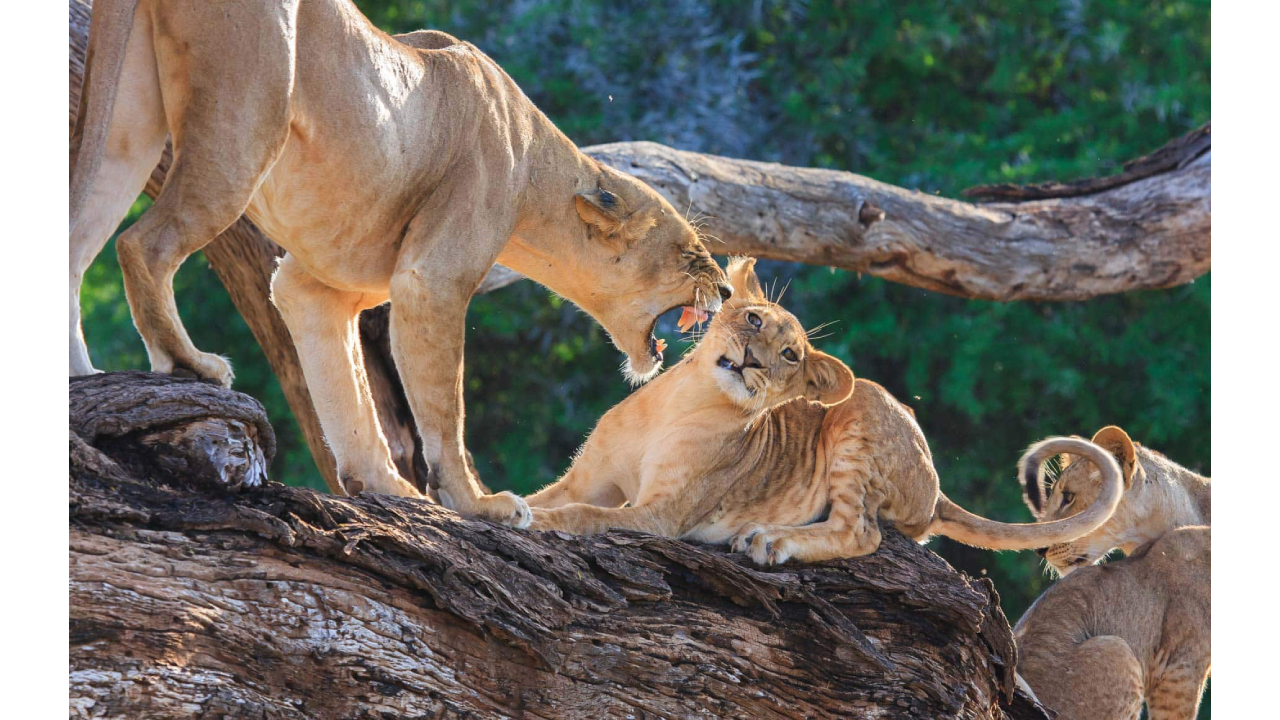
How to Book a Safari in Kenya - Located in Kenya’s northern frontier, Samburu is renowned for its unique wildlife species not found in other parts of the country, such as the reticulated giraffe, Grevy’s zebra, and Somali ostrich.
- The reserve’s rugged terrain, scenic riverine forests, and dramatic landscapes provide a captivating backdrop for safari adventures.
-
Lake Nakuru National Park:
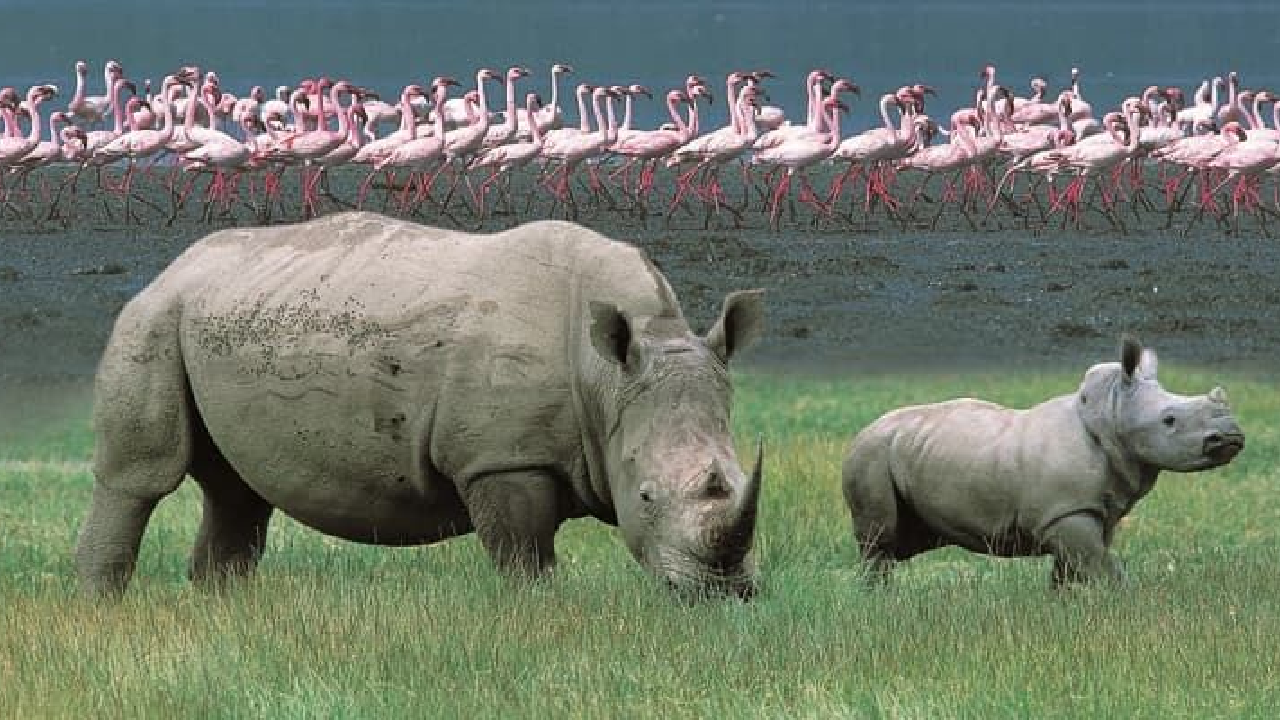
How to Book a Safari in Kenya - Famous for its spectacular flocks of pink flamingos that adorn the shores of Lake Nakuru, this park offers a mesmerizing wildlife spectacle.
- Beyond flamingos, Lake Nakuru is home to a diverse array of wildlife, including rhinos, lions, and baboons, making it a must-visit destination for nature lovers.
These are just a few highlights of Kenya’s renowned safari destinations, each offering a unique blend of wildlife, landscapes, and cultural experiences that promise an unforgettable safari adventure.
B. Importance of proper planning and booking for a memorable safari experience
Proper planning and booking are essential for ensuring a memorable safari experience in Kenya. Here’s why:
-
Availability and Accessibility:
- Popular safari destinations and accommodations often book up quickly, especially during peak seasons like the Great Wildebeest Migration. Planning ahead ensures that you secure the dates and accommodations that best suit your preferences.
- Some remote safari lodges and camps may have limited availability and require advance booking to secure transportation and accommodations.
-
Tailored Experiences:
- Planning ahead allows you to customize your safari experience to match your interests and preferences. Whether you’re interested in wildlife photography, birdwatching, or cultural interactions, booking in advance enables you to arrange specialized tours and activities.
-
Budgeting and Cost Savings:
- Advance planning gives you time to research and compare safari operators, tour packages, and accommodation options to find the best value for your budget.
- Booking early may also offer access to early bird discounts, special promotions, or package deals that can help you save on safari expenses.
-
Peace of Mind:
- Planning and booking in advance alleviate last-minute stress and uncertainty, allowing you to focus on enjoying your safari adventure.
- Confirming reservations and logistics ahead of time ensures a seamless travel experience, with less risk of encountering availability issues or unforeseen complications during your trip.
-
Guaranteeing Quality:
- Booking reputable safari operators and accommodations ensures a high-quality safari experience with knowledgeable guides, comfortable accommodations, and reliable transportation.
- Researching and booking in advance enables you to read reviews, testimonials, and ratings from other travelers to ensure you choose trusted providers.
-
Maximizing Wildlife Sightings:
- Planning your safari itinerary in advance allows you to schedule game drives and activities during optimal wildlife viewing times, such as early mornings and late afternoons when animals are most active.
- Experienced safari guides can help you track wildlife movements and navigate the terrain to maximize your chances of encountering a diverse array of species.
Proper planning and booking are integral to ensuring a memorable and stress-free safari experience in Kenya. By taking the time to research, compare options, and make arrangements in advance, you can create a personalized itinerary that meets your expectations and guarantees an unforgettable adventure in the heart of Africa’s wilderness.
II. Understanding Kenya’s Safari Destinations
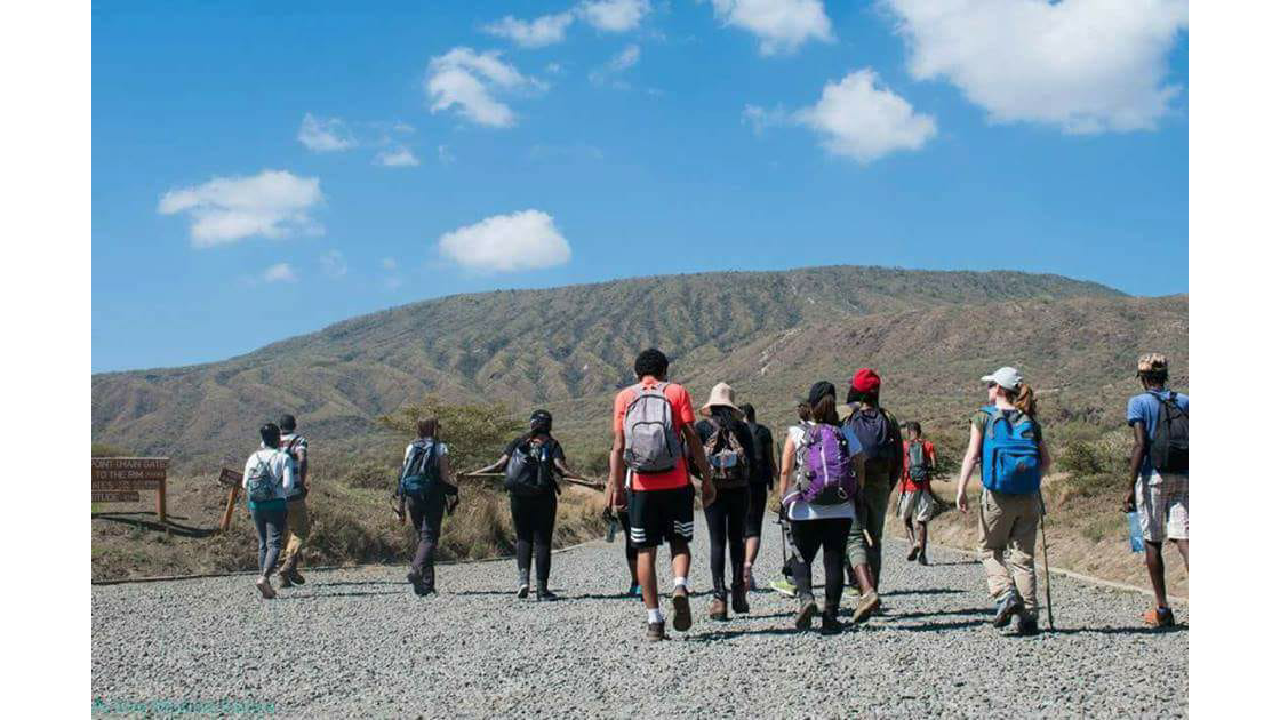
A. Overview of Kenya’s diverse ecosystems and wildlife
Kenya’s diverse ecosystems and wildlife make it a premier destination for safari enthusiasts worldwide. Here’s an overview of the country’s remarkable natural landscapes and the wildlife that inhabits them:
-
Savannahs:
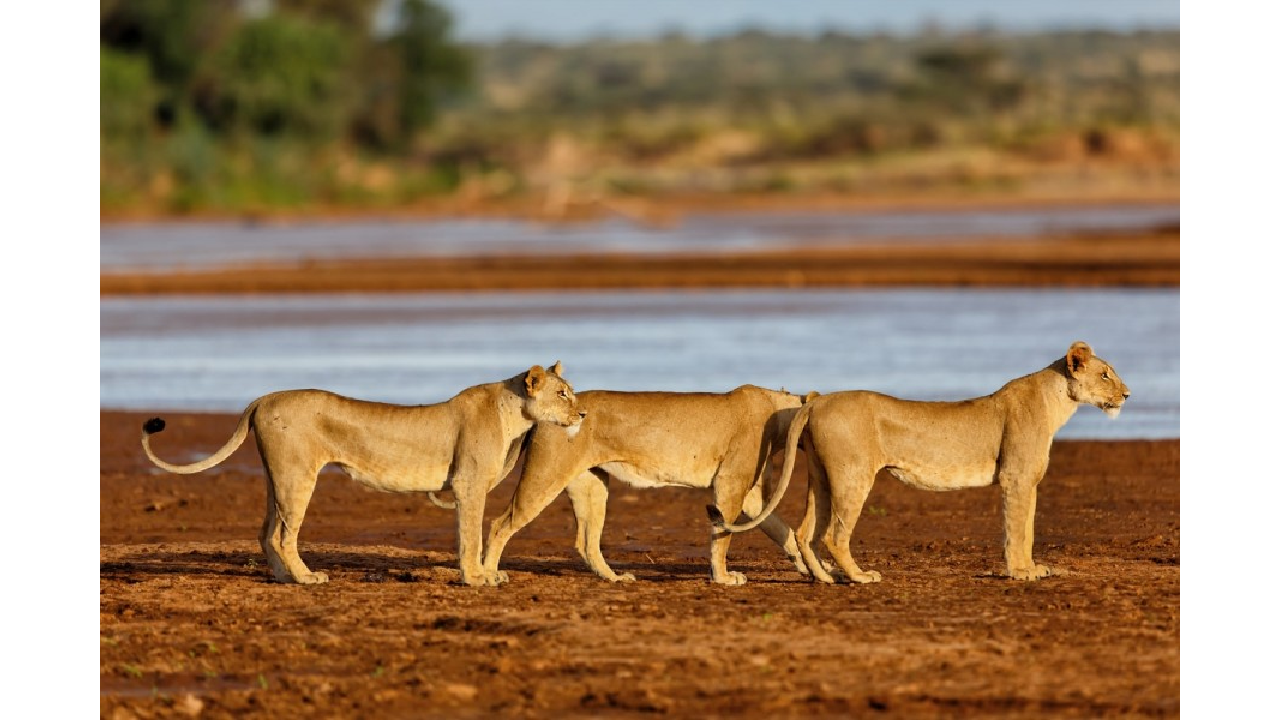
How to Book a Safari in Kenya - Kenya is renowned for its vast savannah grasslands, which are home to an abundance of wildlife. These open plains provide ideal habitat for iconic African species such as lions, elephants, giraffes, zebras, and wildebeests.
- The savannahs of Kenya are characterized by sweeping vistas, acacia-dotted landscapes, and seasonal rivers, creating a stunning backdrop for wildlife viewing and photography.
-
Forests and Woodlands:
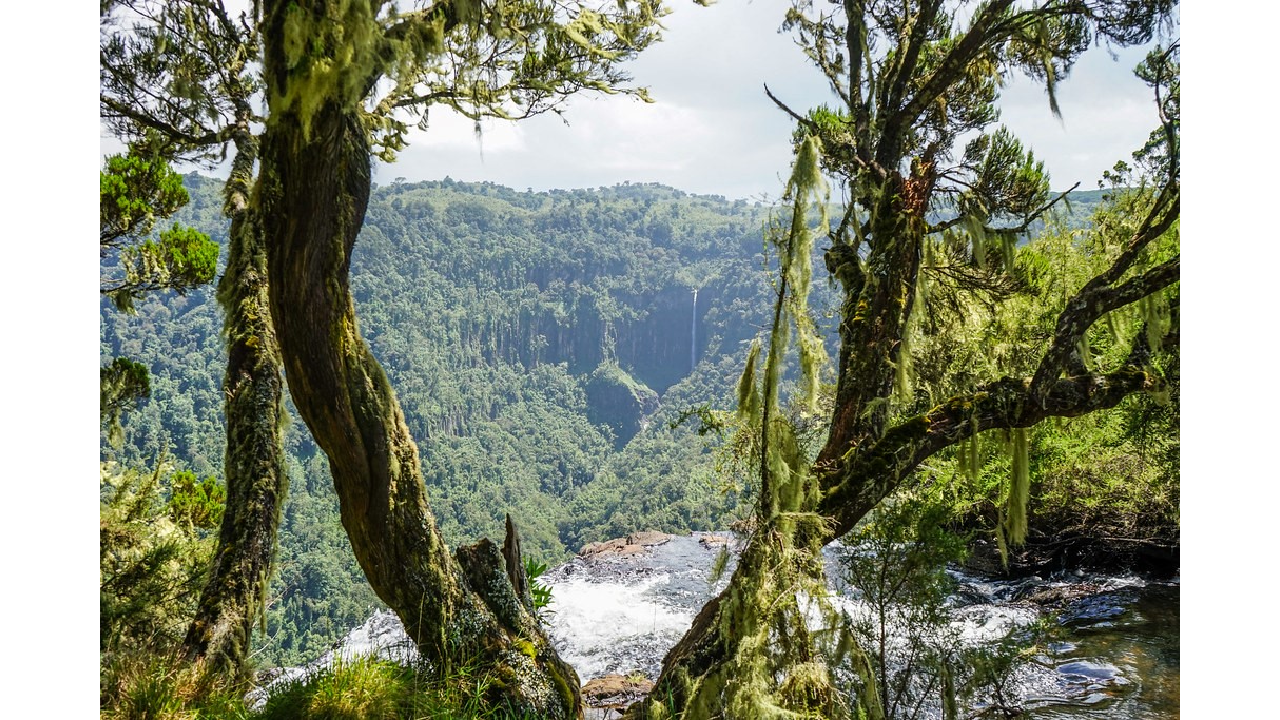
How to Book a Safari in Kenya - Kenya’s diverse ecosystems include lush forests and woodlands, which are vital habitats for a variety of wildlife species. These forests are home to primates such as chimpanzees and colobus monkeys, as well as a rich diversity of birdlife.
- Notable forest reserves in Kenya include the Aberdare National Park, Kakamega Forest, and the montane forests of Mount Kenya, each offering unique opportunities for nature exploration and wildlife encounters.
-
Mountains and Highlands:
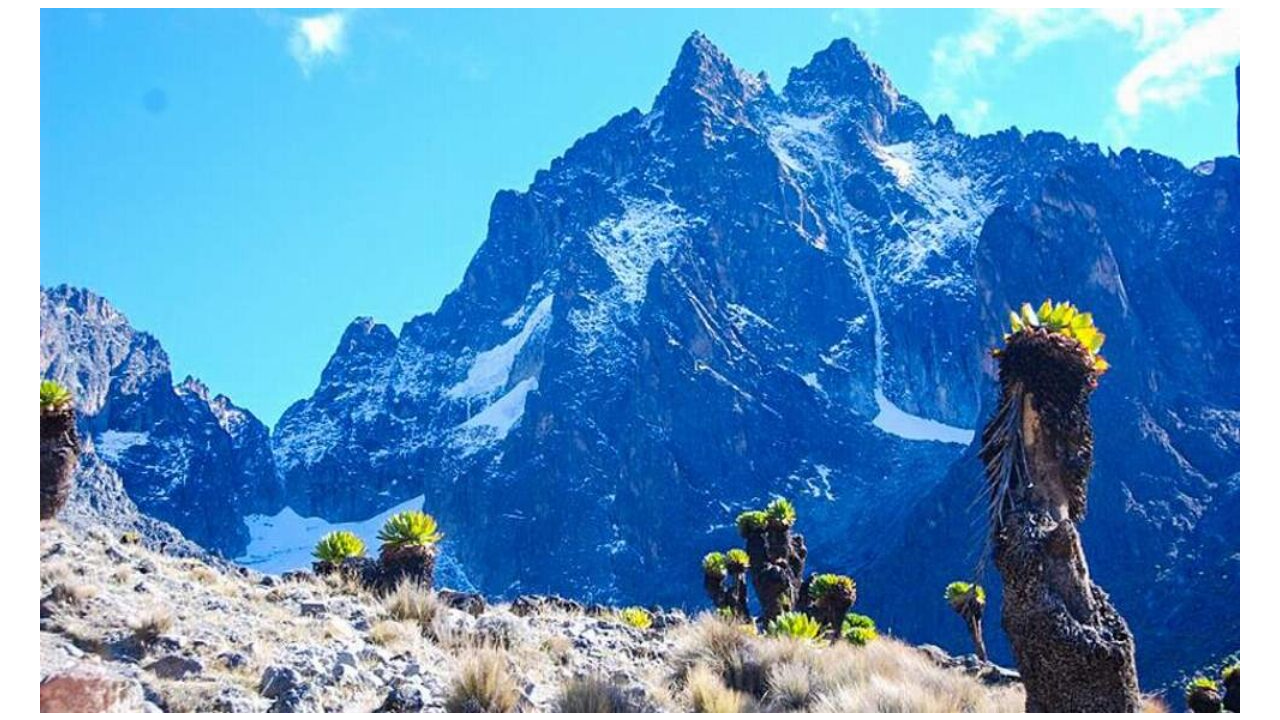
How to Book a Safari in Kenya - Kenya’s landscape is punctuated by dramatic mountain ranges and highland plateaus, including Mount Kenya, Africa’s second-highest peak. These mountainous regions harbor unique flora and fauna adapted to high-altitude environments.
- Mount Kenya National Park is a UNESCO World Heritage Site renowned for its diverse ecosystems, alpine vegetation, and endemic species such as the rare bongo antelope and mountain rock hyrax.
-
Rift Valley Lakes:
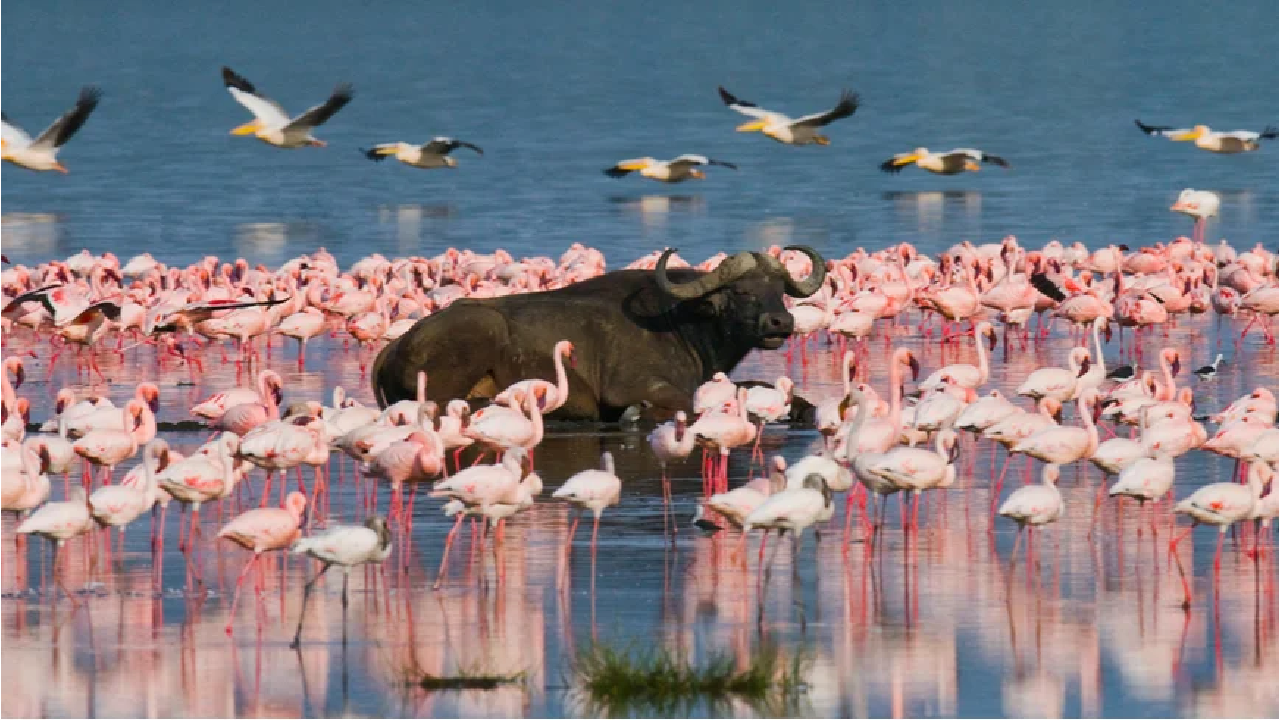
How to Book a Safari in Kenya - The Great Rift Valley runs through Kenya, creating a series of stunning lakes that support a wealth of biodiversity. These alkaline lakes are famous for their flamingo populations, which gather in large numbers to feed on algae-rich waters.
- Lake Nakuru National Park, Lake Bogoria, and Lake Naivasha are among the Rift Valley lakes renowned for their birdlife, including pelicans, cormorants, and fish eagles.
-
Coastal Areas and Marine Reserves:
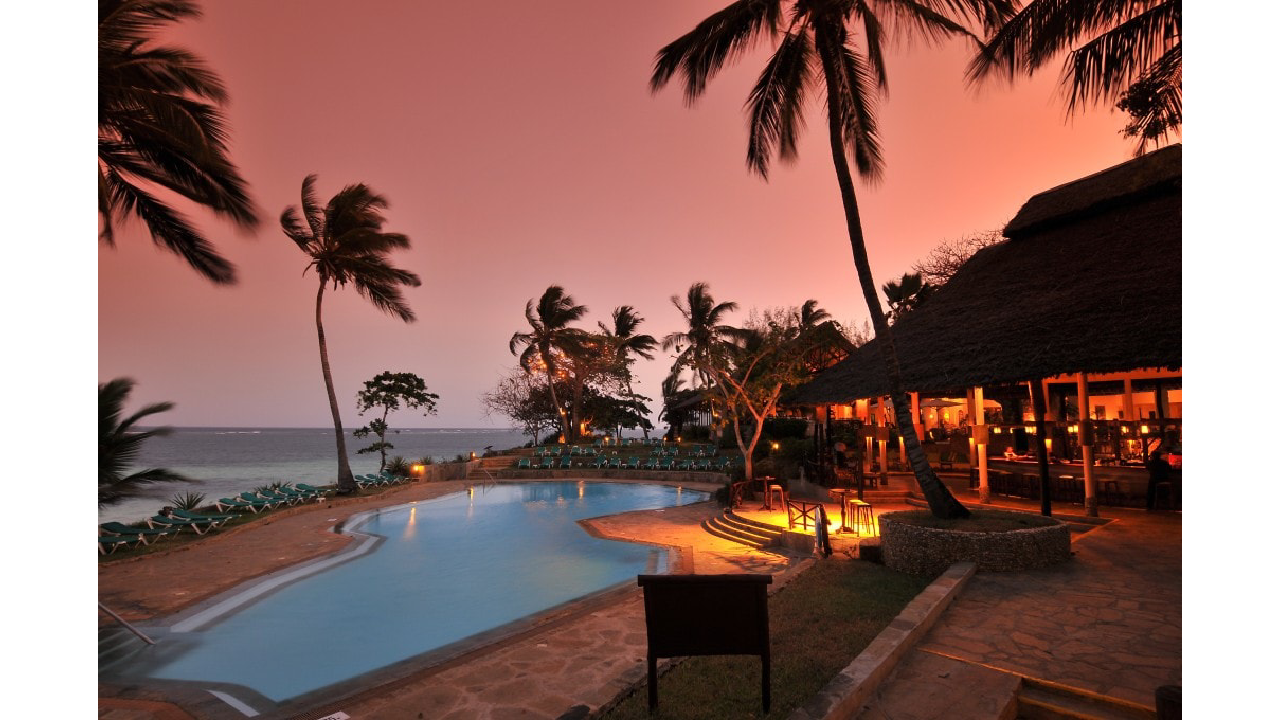
How to Book a Safari in Kenya - Kenya’s coastline along the Indian Ocean is fringed by pristine beaches, coral reefs, and mangrove forests. These coastal ecosystems support diverse marine life, including colorful reef fish, dolphins, and sea turtles.
- Marine reserves such as the Kisite-Mpunguti Marine National Park and Watamu Marine National Park offer opportunities for snorkeling, diving, and boat safaris to explore Kenya’s underwater treasures.
Kenya’s rich tapestry of ecosystems provides a sanctuary for an astonishing array of wildlife, making it a paradise for nature lovers and safari adventurers alike. Whether exploring the savannahs of the Maasai Mara or the forests of Mount Kenya, visitors to Kenya are treated to an unforgettable journey through some of Africa’s most iconic landscapes.
B. Highlighting popular national parks and reserves
Kenya is home to a plethora of national parks and reserves, each offering unique wildlife experiences and stunning natural landscapes. Here are some of the most popular ones:
-
Masai Mara National Reserve:
- Renowned for its spectacular wildlife sightings and the annual Great Wildebeest Migration, the Masai Mara is one of Africa’s most iconic safari destinations.
- The reserve is teeming with diverse wildlife, including the “Big Five” (lion, elephant, buffalo, leopard, and rhinoceros), as well as cheetahs, hyenas, giraffes, and countless bird species.
- Visitors to Masai Mara can enjoy thrilling game drives, hot air balloon safaris, and cultural interactions with the Maasai community.
-
Amboseli National Park:
- Famous for its breathtaking views of Mount Kilimanjaro, Africa’s highest peak, Amboseli National Park offers a unique backdrop for safari adventures.
- The park is renowned for its large herds of elephants, which can be seen roaming against the backdrop of the snow-capped mountain.
- Other wildlife species found in Amboseli include lions, leopards, cheetahs, buffalo, zebras, and wildebeests, as well as prolific birdlife.
-
Tsavo National Parks (East and West):
- Tsavo is Kenya’s largest national park, divided into Tsavo East and Tsavo West, each offering distinct landscapes and wildlife experiences.
- Tsavo East is characterized by vast open plains, the famous red elephants, and attractions such as the Yatta Plateau and the Lugard Falls.
- Tsavo West features volcanic landscapes, rugged terrain, dense forests, and notable landmarks like Mzima Springs, Ngulia Rhino Sanctuary, and the Chyulu Hills.
-
Samburu National Reserve:
- Located in Kenya’s northern frontier, Samburu National Reserve is known for its unique wildlife species not found in other parts of the country.
- Visitors to Samburu can encounter rare species such as the reticulated giraffe, Grevy’s zebra, Somali ostrich, and the endangered African wild dog.
- The reserve’s scenic riverine forests, rugged hills, and dramatic landscapes provide a captivating backdrop for safari adventures.
-
Lake Nakuru National Park:
- Famous for its vibrant pink flamingo populations that gather along the shores of Lake Nakuru, this park offers a mesmerizing wildlife spectacle.
- In addition to flamingos, Lake Nakuru is home to rhinos, lions, leopards, giraffes, buffalo, and over 450 bird species, making it a paradise for birdwatchers and wildlife enthusiasts.
- Visitors can explore the park’s diverse habitats, including the lake, acacia forests, and grasslands, while enjoying game drives and guided walks.
These national parks and reserves are just a glimpse of Kenya’s rich biodiversity and stunning natural beauty, offering unforgettable safari experiences for travelers seeking adventure in the heart of Africa.
C. Factors to consider when choosing a safari destination
When selecting a safari destination in Kenya, several factors should be considered to ensure you have the best possible experience. Here are some key factors to keep in mind:
-
Season:
- High Season: The high season in Kenya typically coincides with the dry season, from July to October. During this time, wildlife congregates around water sources, making it easier to spot animals. It’s also the time of the Great Wildebeest Migration in the Masai Mara, a spectacle not to be missed.
- Shoulder Seasons: The shoulder seasons, which occur during the transitional periods between the wet and dry seasons (November to December and March to May), offer a balance between fewer crowds and favorable wildlife viewing opportunities.
- Low Season: The low season, during the wet season from April to June, is characterized by lush landscapes, fewer tourists, and discounted rates. While wildlife may be more challenging to spot due to thicker vegetation, it’s an excellent time for birdwatching and enjoying the greenery.
-
Wildlife Sightings:
- Different parks and reserves in Kenya offer varying wildlife experiences based on their ecosystems and habitats. Research the specific species you wish to see and choose a destination known for hosting those animals.
- Consider the time of year and the movements of migratory species when planning your safari. For example, if witnessing the Great Wildebeest Migration is a priority, visit the Masai Mara during the migration season.
-
Budget:
- Safari costs can vary widely depending on the destination, accommodation type, duration of the safari, and included activities. Determine your budget and look for safari options that fit within your financial constraints.
- Keep in mind that high-end lodges and luxury tented camps often come with premium prices but offer unparalleled comfort and amenities. Alternatively, budget-friendly camps and self-drive options can provide a more affordable safari experience without compromising on wildlife sightings.
-
Accessibility and Transportation:
- Consider the accessibility of the safari destination and how you plan to get there. Some parks and reserves are easily accessible by road from major cities like Nairobi, while others may require domestic flights or charter planes.
- Factor in transportation costs, travel time, and any visa requirements when planning your safari itinerary.
-
Personal Preferences:
- Think about your interests and preferences when choosing a safari destination. Whether you prefer open savannahs, dense forests, or scenic mountains, there’s a safari destination in Kenya to suit your tastes.
- Consider whether you prefer guided game drives, walking safaris, hot air balloon rides, or cultural interactions with local communities when selecting a safari experience.
By considering these factors carefully, you can choose a safari destination in Kenya that aligns with your preferences, budget, and expectations, ensuring a memorable and fulfilling wildlife adventure.
III. Planning Your Safari Experience
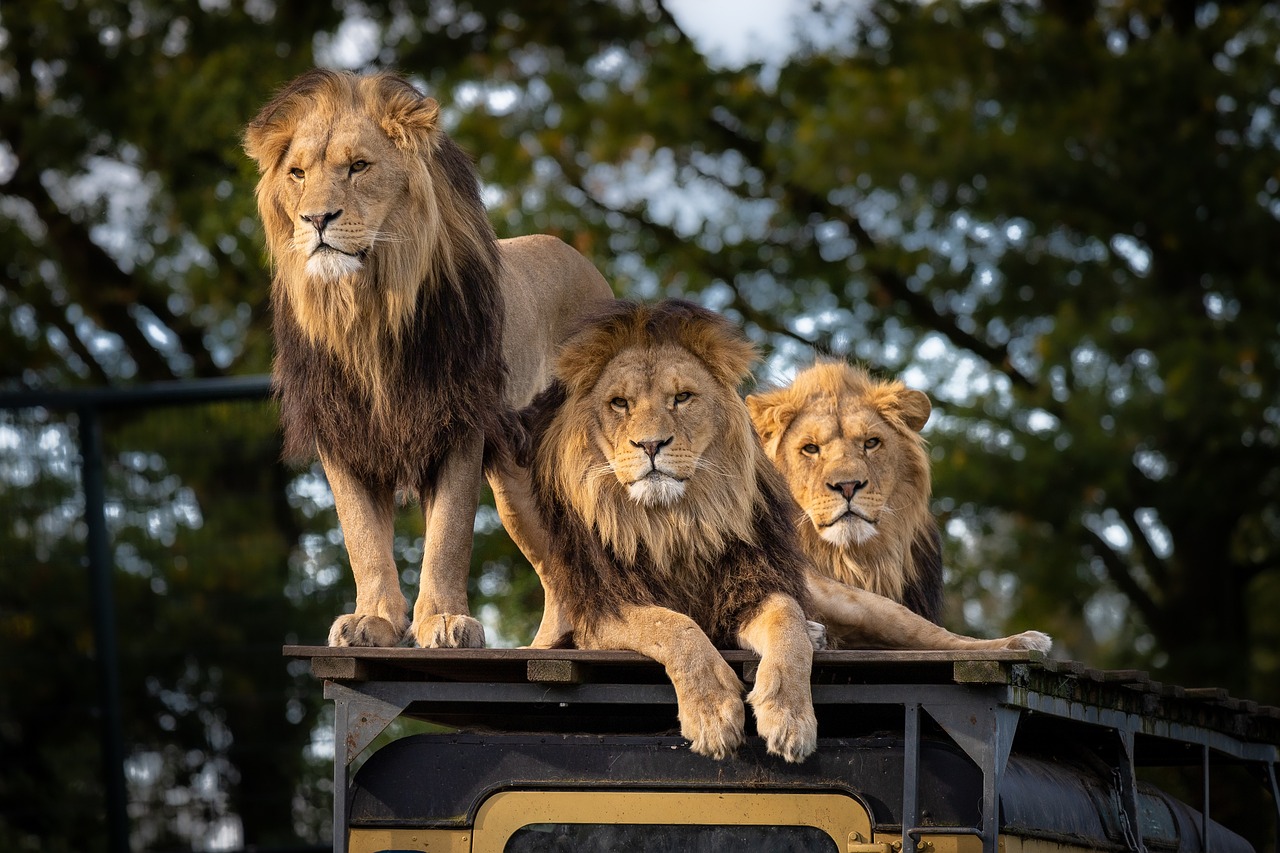
A. Setting your safari goals and expectations
Before embarking on a safari in Kenya, it’s crucial to establish clear goals and expectations to ensure a fulfilling and memorable experience. Here’s how to set your safari goals and expectations:
-
Identify Your Wildlife Interests:
- Determine which animals you’re most eager to see during your safari adventure. Whether it’s the “Big Five” (lion, elephant, buffalo, leopard, and rhinoceros), elusive predators like cheetahs and leopards, or specific bird species, knowing your wildlife priorities will help you choose the right safari destination and activities.
-
Define Your Safari Experience:
- Consider the type of safari experience you envision. Are you seeking thrilling game drives through vast savannahs, tranquil bush walks guided by experienced trackers, or unique cultural interactions with local communities? Clarifying your preferred activities and experiences will guide your safari planning process.
-
Determine Your Comfort Level:
- Assess your comfort preferences and expectations regarding accommodation and amenities. Kenya offers a wide range of lodging options, from luxury safari lodges and tented camps to more rustic bush camps and self-catering accommodations. Decide whether you prioritize luxury and comfort or prefer a more adventurous and immersive safari experience.
-
Set Realistic Expectations:
- Keep your expectations grounded in reality by understanding that wildlife encounters can be unpredictable. While Kenya’s national parks and reserves boast incredible biodiversity, sightings are never guaranteed. Be prepared to appreciate the beauty of the natural surroundings and embrace the serendipity of wildlife sightings, regardless of their frequency or rarity.
-
Consider Environmental and Ethical Factors:
- Factor in your environmental and ethical values when setting your safari goals. Choose safari operators and accommodations committed to sustainable tourism practices, wildlife conservation, and responsible community engagement. Ensure that your safari experience aligns with your principles of ethical wildlife viewing and environmental stewardship.
-
Consult with Experts:
- Seek guidance from experienced safari planners, travel agents, or tour operators who can provide valuable insights and recommendations based on your interests, preferences, and budget. Consult online resources, travel forums, and reviews from fellow travelers to gather firsthand insights and recommendations for planning your safari adventure.
By setting clear goals and expectations for your safari in Kenya, you’ll be better equipped to plan a personalized itinerary that aligns with your interests, values, and aspirations. Whether you’re dreaming of close encounters with iconic wildlife, immersive cultural experiences, or awe-inspiring landscapes, defining your safari goals will lay the foundation for an unforgettable journey into the heart of Africa’s wilderness
B. Determining the best time to visit Kenya for a safari
Determining the best time to visit Kenya for a safari depends on various factors, including weather patterns, wildlife movements, and personal preferences. Here’s a guide to help you choose the optimal time for your safari adventure:
-
High Season (July to October):
- The dry season in Kenya typically extends from July to October, making it the peak safari season. During this time, wildlife congregates around water sources, resulting in excellent game viewing opportunities.
- July to September is particularly renowned for the Great Wildebeest Migration in the Masai Mara, where millions of wildebeests, zebras, and other herbivores cross the Mara River in search of fresh grazing grounds.
- The weather is generally dry and sunny, with cooler temperatures in the mornings and evenings. This period offers ideal conditions for game drives, photography, and hot air balloon safaris.
-
Shoulder Seasons (November to December, and March to May):
- The shoulder seasons mark the transitional periods between the wet and dry seasons in Kenya.
- November to December is known as the short rains season, characterized by occasional afternoon showers and lush green landscapes. Wildlife sightings may be less predictable during this time, but it’s an excellent opportunity to enjoy fewer crowds and discounted rates.
- March to May is the long rains season, with heavier rainfall and occasional thunderstorms. While wildlife viewing may be challenging due to dense vegetation and muddy trails, this period offers vibrant greenery, fewer tourists, and budget-friendly safari options.
-
Low Season (April to June):
- The low season coincides with the long rains season, making it the least popular time for safaris in Kenya.
- April to June experiences heavy rainfall and cooler temperatures, resulting in lush vegetation and fewer tourists. Lodges and camps often offer discounted rates and special deals during this period, making it an attractive option for budget-conscious travelers.
- While wildlife sightings may be more challenging due to thicker vegetation and limited access to certain areas, the landscape is transformed into a verdant paradise, and birdwatching opportunities abound.
Ultimately, the best time to visit Kenya for a safari depends on your preferences, interests, and priorities. Whether you prioritize witnessing the Great Wildebeest Migration, enjoying fewer crowds, or taking advantage of discounted rates, there’s a safari season in Kenya to suit every traveler’s needs. Consider consulting with safari experts or tour operators to help you plan your safari itinerary based on the timing that aligns with your goals and expectations.
C. Budgeting for your safari trip
Budgeting for a safari trip to Kenya involves careful consideration of various expenses, including accommodation, transportation, park fees, and activities. Here’s a breakdown of the key components to include in your safari budget:
-
Accommodation:
- Safari accommodation options in Kenya range from luxury lodges and tented camps to mid-range lodges and budget-friendly campsites.
- Luxury lodges and tented camps typically offer spacious rooms or tents with en-suite bathrooms, gourmet dining, and personalized service. Prices can range from $300 to $1,000 or more per person per night.
- Mid-range lodges and tented camps provide comfortable accommodation and basic amenities at more affordable rates, averaging between $150 to $300 per person per night.
- Budget-friendly campsites offer the most economical accommodation option, with prices ranging from $50 to $150 per person per night for basic tents or self-catering facilities.
-
Transportation:
- Transportation expenses include domestic flights, road transfers, and park entrance fees.
- Domestic flights are often the fastest and most convenient way to travel between major safari destinations in Kenya. Prices vary depending on the distance and airline, ranging from $100 to $300 or more per person per flight.
- Road transfers via safari vehicles or private cars are a popular option for shorter distances or budget-conscious travelers. Costs depend on the distance traveled, vehicle type, and fuel prices.
- Park entrance fees vary by park and are typically charged per day per person. Prices range from $20 to $80 or more for international tourists, with discounts available for children and residents of Kenya.
-
Park Fees:
- In addition to park entrance fees, some national parks and reserves may charge additional fees for activities such as guided game drives, bush walks, or cultural visits.
- These fees can vary depending on the park, activity, and duration. It’s essential to inquire about specific fees and budget accordingly.
-
Activities:
- Safari activities such as game drives, guided walks, hot air balloon safaris, and cultural interactions may incur additional costs.
- Prices vary depending on the activity, duration, and location. It’s advisable to research activity options in advance and budget accordingly.
Tips for Budgeting:
- Research and compare accommodation options, transportation providers, and safari packages to find the best value for your budget.
- Consider traveling during the shoulder or low seasons when accommodation rates are lower, and special offers or discounts may be available.
- Look for all-inclusive safari packages that bundle accommodation, meals, transportation, park fees, and activities into a single price for easier budgeting and cost transparency.
- Allocate a contingency fund for unexpected expenses or emergencies, such as medical treatment, travel insurance, or souvenirs.
By carefully budgeting for accommodation, transportation, park fees, and activities, you can plan a safari trip to Kenya that meets your financial constraints while still providing an unforgettable wildlife experience in the heart of Africa.
D. Researching reputable safari operators and tour packages
Researching reputable safari operators and tour packages is essential to ensure a safe, enjoyable, and memorable safari experience in Kenya. Here’s a guide to help you find and evaluate safari operators:
-
Online Research:
- Start by researching safari operators and tour packages online. Visit their websites, read customer reviews and testimonials, and explore their social media profiles to gauge their reputation and credibility.
- Look for safari operators that specialize in Kenya and have extensive experience organizing safaris in the country. Check if they are members of reputable industry associations such as the Kenya Association of Tour Operators (KATO) or the Association of Uganda Tour Operators (AUTO).
-
Recommendations and Referrals:
- Seek recommendations and referrals from friends, family members, or colleagues who have previously been on safari in Kenya. Personal referrals can provide valuable insights and firsthand experiences to help you make an informed decision.
- Reach out to online travel communities, forums, or review websites where travelers share their safari experiences and recommendations. Ask questions, seek advice, and gather recommendations from fellow travelers who have visited Kenya recently.
-
Credentials and Certifications:
- Verify the credentials and certifications of safari operators to ensure they meet industry standards and regulations. Look for licensed tour operators with trained and qualified guides who adhere to responsible tourism practices and safety standards.
- Check if the safari operator is affiliated with recognized tourism associations, accredited by relevant government bodies, or endorsed by reputable travel organizations.
-
Customization and Flexibility:
- Choose safari operators that offer customized itineraries tailored to your interests, preferences, and budget. Look for flexibility in tour packages, allowing you to select accommodations, activities, and destinations based on your individual needs.
- Inquire about the level of personalization and flexibility offered by the safari operator, including the ability to accommodate special requests, dietary preferences, mobility restrictions, or group size.
-
Transparency and Communication:
- Ensure clear and transparent communication with the safari operator regarding pricing, inclusions, exclusions, terms and conditions, and cancellation policies. Request detailed quotes and itineraries to understand what is included in the tour package and any additional costs or optional extras.
- Ask questions, seek clarification, and express any concerns or preferences you may have before booking your safari. A reputable safari operator will be responsive, informative, and transparent in their communication with you.
-
Safety and Emergency Protocols:
- Prioritize safety and emergency preparedness when evaluating safari operators. Inquire about their safety protocols, vehicle maintenance standards, first aid provisions, and evacuation procedures in case of emergencies.
- Choose safari operators that prioritize the well-being and security of their clients and have comprehensive insurance coverage for medical emergencies, evacuation, and trip interruptions.
By conducting thorough research, seeking recommendations, verifying credentials, and prioritizing safety and communication, you can find reputable safari operators and tour packages that align with your preferences and expectations for an unforgettable safari adventure in Kenya.
IV. Booking Your Safari
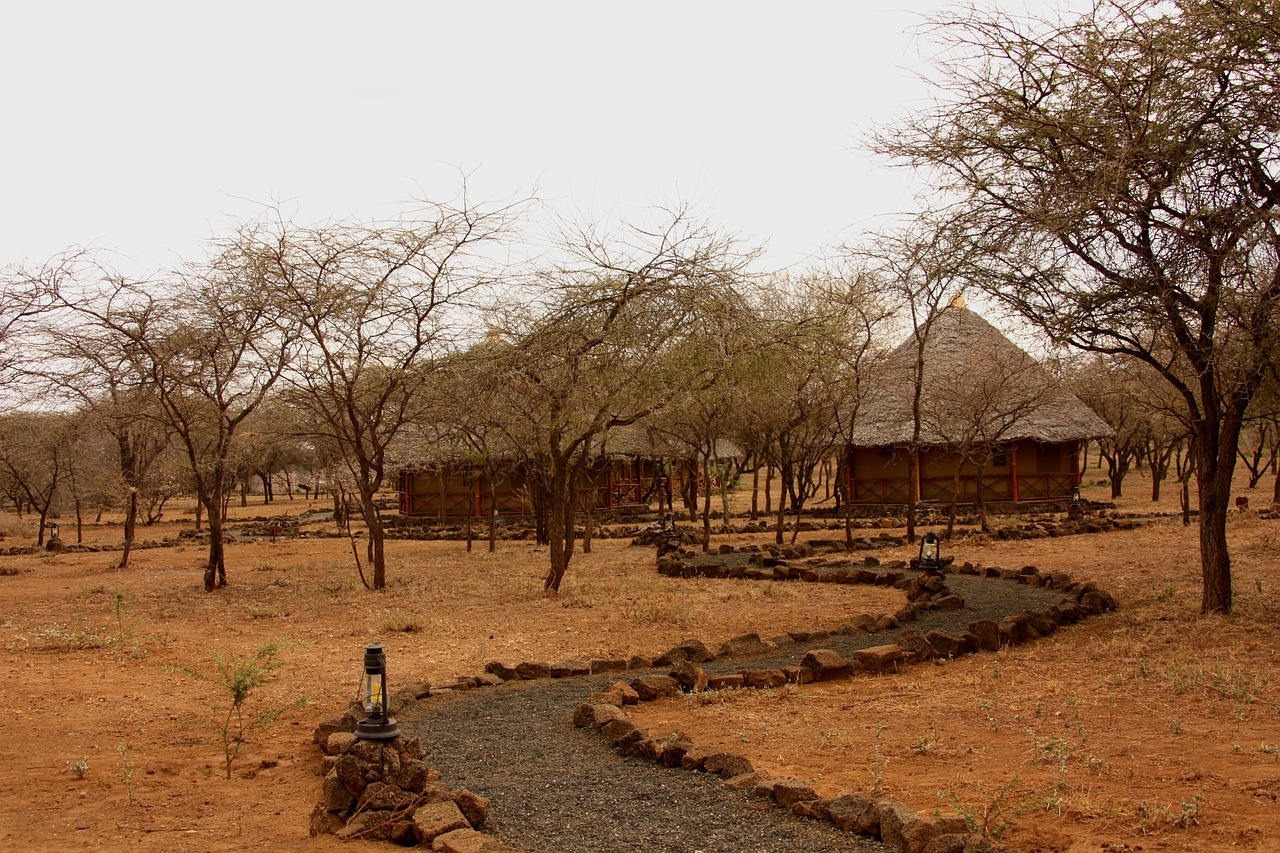
A. Step-by-step guide to booking a safari in Kenya
Booking a safari in Kenya involves several essential steps to ensure a seamless and enjoyable experience. Here’s a step-by-step guide to help you through the process:
-
Research and Compare Safari Operators:
- Start by researching safari operators online, using reputable travel websites, forums, and review platforms.
- Evaluate safari operators based on factors such as reputation, experience, customer reviews, types of safari experiences offered, and sustainability practices.
- Compile a shortlist of safari operators that align with your preferences, interests, and budget.
-
Contacting Operators and Requesting Quotes:
- Reach out to the selected safari operators via email, phone, or their website’s contact form to inquire about their services and availability.
- Provide detailed information about your safari preferences, including travel dates, group size, accommodation preferences, desired activities, and any special requests or dietary restrictions.
- Request customized safari quotes from each operator, specifying your preferences and budget constraints to receive accurate pricing information.
- Ask about any special promotions, discounts, or seasonal offers that may be available to help you save on your safari booking.
-
Clarifying Inclusions and Exclusions of the Safari Package:
- Review the safari quotes received from different operators carefully to understand what is included and excluded in each package.
- Pay attention to inclusions such as accommodation, meals, transportation, park fees, guided activities, and any additional services or amenities provided.
- Clarify any questions or uncertainties you may have regarding the safari itinerary, accommodation standards, vehicle types, group sizes, and cancellation policies.
- Discuss any optional extras or upgrades available, such as hot air balloon safaris, private game drives, cultural visits, or special celebrations.
- Request detailed itineraries, terms and conditions, and payment options from the safari operators to ensure you have a clear understanding of what to expect during your safari experience.
-
Making Reservations and Confirming Bookings:
- Once you have reviewed the safari quotes, selected your preferred operator, and finalized the details of your safari package, it’s time to make reservations.
- Contact the safari operator to confirm your booking and provide any necessary information, such as passport details and dietary preferences.
- Follow the operator’s instructions for making payments, whether it’s via bank transfer, credit card, or online payment platform.
- Request written confirmation of your safari booking, including an official itinerary, receipt of payment, and any relevant travel documents or vouchers.
- Double-check all the details of your safari booking to ensure accuracy and clarity, including travel dates, accommodation reservations, activities, and any special requests.
- Keep all communication and documentation related to your safari booking organized and easily accessible for reference before and during your trip.
By following these steps and taking the time to research, communicate, and confirm your safari booking thoroughly, you can secure a memorable and hassle-free safari experience in Kenya.
B. Tips for Securing the Best Deals and Discounts:
-
Book Early:
- Many safari operators offer early bird discounts for bookings made several months in advance. By planning your safari well ahead of time, you can take advantage of these special offers and secure lower rates.
-
Travel During Shoulder Seasons:
- Consider traveling during the shoulder seasons, which typically fall between the high and low seasons. During these periods, safari operators may offer discounted rates to attract visitors during quieter times.
-
Look for Special Promotions:
- Keep an eye out for special promotions, flash sales, or last-minute deals offered by safari operators. Subscribe to newsletters, follow safari operators on social media, and sign up for alerts to stay informed about exclusive offers.
-
Group Discounts:
- If you’re traveling with a group of friends or family members, inquire about group discounts or package deals offered by safari operators. Group bookings may qualify for discounted rates on accommodations, transportation, and activities.
-
Bundle Packages:
- Consider booking bundled safari packages that include accommodation, meals, transportation, park fees, and activities. Safari operators often offer better deals for comprehensive packages compared to booking individual components separately.
-
Flexibility with Dates:
- Remain flexible with your travel dates and be open to adjusting your itinerary based on availability and pricing fluctuations. Safari operators may offer better deals for mid-week departures or alternative travel dates.
C. Understanding Cancellation Policies and Insurance Options:
-
Review Cancellation Policies:
- Familiarize yourself with the cancellation policies of the safari operator before confirming your booking. Understand the deadlines for cancellations, potential penalties or fees, and any refund conditions.
- Consider opting for flexible booking options that offer more lenient cancellation policies, especially if your travel plans are subject to change.
-
Purchase Travel Insurance:
- Protect your investment by purchasing comprehensive travel insurance that covers unforeseen events such as trip cancellations, medical emergencies, evacuation, and travel delays.
- Choose a travel insurance policy that provides adequate coverage for safari activities, including medical evacuation from remote areas and coverage for safari-specific risks such as wildlife encounters.
-
Understand Refund Policies:
- Inquire about the safari operator’s refund policies in case of trip cancellations, itinerary changes, or unforeseen circumstances that affect your travel plans.
- Clarify whether deposits or payments are refundable and under what conditions refunds may be issued, such as force majeure events or operator cancellations.
-
Consider Cancel-for-Any-Reason (CFAR) Coverage:
- Some travel insurance policies offer Cancel-for-Any-Reason (CFAR) coverage, which provides flexibility to cancel your trip for any reason not covered by standard cancellation policies.
- While CFAR coverage may come at an additional cost, it offers peace of mind and greater flexibility for travelers who may need to cancel their safari plans for non-traditional reasons.
By following these tips and understanding the intricacies of cancellation policies and insurance options, you can confidently book your safari in Kenya while maximizing savings and safeguarding your travel investment against unexpected disruptions.
V. Preparing for Your Safari Adventure
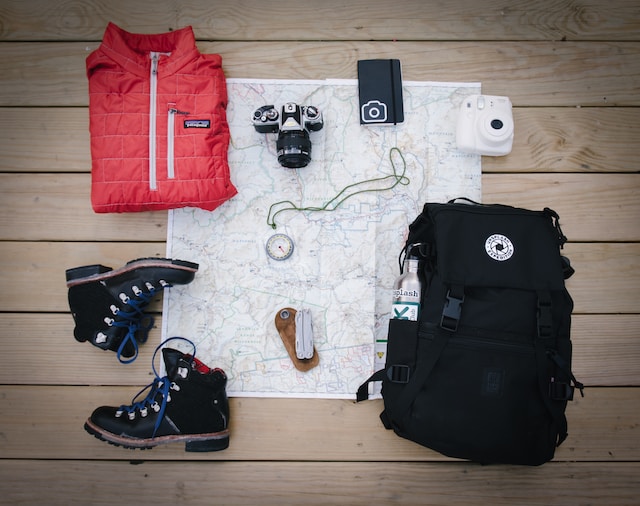
A. Packing Essentials for a Safari Trip:
-
Clothing:
- Lightweight, breathable clothing in neutral colors for blending into the natural surroundings.
- Long-sleeved shirts and pants to protect against sunburn, insects, and thorny vegetation.
- Sweater or jacket for cooler mornings and evenings, especially during the dry season.
- Comfortable walking shoes or hiking boots for bush walks and outdoor activities.
- Hat or cap with a wide brim to shield against the sun.
-
Gear:
- Binoculars for wildlife spotting and birdwatching.
- Camera with telephoto lens or zoom capabilities for capturing wildlife and landscapes.
- Portable power bank or solar charger to keep electronic devices charged.
- Waterproof backpack or daypack for carrying essentials during game drives and excursions.
- Water bottle or hydration pack to stay hydrated throughout the day.
- Flashlight or headlamp for navigating in low-light conditions.
-
Medications and Health Supplies:
- Prescription medications and a copy of the prescription from your doctor.
- Basic first aid kit with bandages, antiseptic wipes, pain relievers, and insect repellent.
- Antimalarial medication and prophylactics if traveling to malaria-prone areas.
- Sunscreen with a high SPF rating and lip balm with UV protection.
- Personal hygiene products, including hand sanitizer and wet wipes.
B. Health and Safety Considerations:
-
Vaccinations:
- Consult with a travel medicine specialist or healthcare provider to review your vaccination history and receive recommendations for travel vaccines.
- Common vaccinations for travelers to Kenya may include hepatitis A and B, typhoid, yellow fever, and routine immunizations.
- Consider getting vaccinated against COVID-19 and influenza, as well as any other recommended vaccines based on your travel itinerary and medical history.
-
Travel Insurance:
- Purchase comprehensive travel insurance that covers medical emergencies, evacuation, trip cancellation, and travel disruptions.
- Ensure your travel insurance policy includes coverage for safari activities, adventure sports, and wildlife encounters.
- Review the terms and conditions of your insurance policy to understand coverage limits, exclusions, and claims procedures.
C. Cultural Etiquette and Responsible Wildlife Viewing Practices:
-
Respect Local Customs and Traditions:
- Familiarize yourself with Kenyan customs, traditions, and cultural norms to show respect for the local culture.
- Dress modestly and avoid wearing revealing clothing, especially when visiting religious sites or interacting with local communities.
-
Responsible Wildlife Viewing:
- Follow the guidance of experienced guides and adhere to park regulations and guidelines for wildlife viewing.
- Maintain a safe distance from wild animals and refrain from approaching or disturbing them for a closer look or photo opportunity.
- Avoid feeding wildlife or leaving behind any litter or waste that could harm the environment or endanger wildlife.
D. Finalizing Travel Logistics and Arrangements:
-
Confirm Travel Documents:
- Ensure you have a valid passport with at least six months’ validity remaining beyond your intended stay in Kenya.
- Obtain any necessary visas or permits required for entry into Kenya and travel within the country.
- Make copies of important travel documents, including passports, visas, travel insurance, and emergency contacts, and keep them in a secure location.
-
Arrange Transportation and Accommodation:
- Confirm transportation arrangements, including flights, airport transfers, and ground transportation to and from safari destinations.
- Double-check accommodation reservations and confirm details such as check-in times, room preferences, and special requests with the safari lodge or camp.
-
Share Itinerary and Emergency Contacts:
- Share your safari itinerary, contact information, and emergency contacts with family members, friends, or trusted individuals.
- Provide copies of your itinerary and contact details to your safari operator, hotel staff, and any local guides or drivers accompanying you during your safari adventure.
By preparing thoroughly for your safari adventure and addressing health, safety, cultural, and logistical considerations, you can ensure a smooth and rewarding experience exploring the stunning landscapes and wildlife of Kenya’s national parks and reserves.
VI. Enjoying Your Safari Experience:
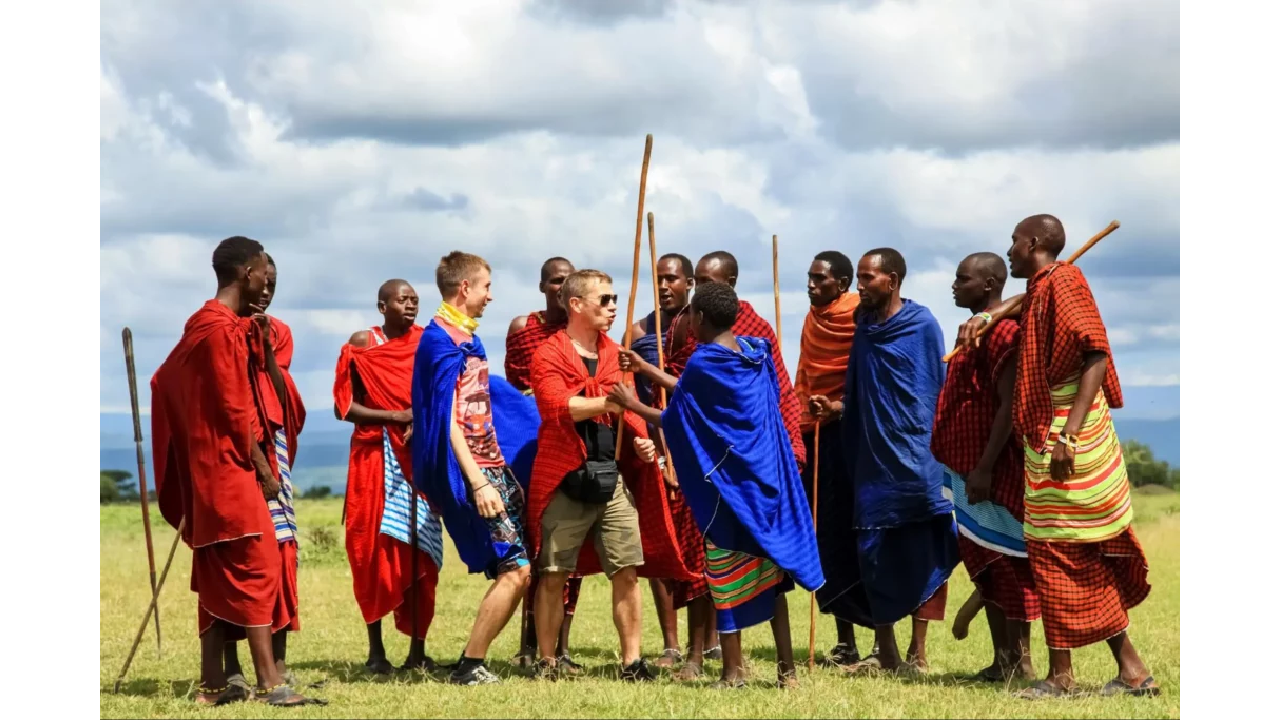
A. Arrival and Orientation at the Safari Destination:
-
Welcome and Check-In:
- Upon arrival at your safari destination, you will be greeted by your safari guide or lodge staff.
- Complete the check-in process, where you may be provided with a welcome drink and orientation briefing about the safari lodge or camp facilities.
-
Orientation and Safety Briefing:
- Attend a comprehensive orientation session conducted by your safari guide or camp manager.
- Receive essential information about safety procedures, wildlife viewing etiquette, and camp rules to ensure a safe and enjoyable safari experience.
- Familiarize yourself with the layout of the lodge or camp, including the dining area, lounge, restroom facilities, and your accommodation.
-
Itinerary Review:
- Review your safari itinerary with your guide or camp staff to confirm scheduled activities, game drives, meals, and any optional excursions or cultural experiences.
- Discuss any preferences, interests, or special requests you have for your safari experience to tailor the itinerary to your liking.
B. Activities and Excursions Offered During the Safari:
-
Game Drives:
- Embark on thrilling game drives through the national parks and reserves with experienced safari guides.
- Explore diverse habitats and landscapes while searching for iconic wildlife species such as lions, elephants, giraffes, and rhinos.
- Enjoy morning, afternoon, and evening game drives to maximize wildlife sightings and observe different behaviors.
-
Bush Walks and Nature Walks:
- Join guided bush walks or nature walks led by knowledgeable rangers to explore the wilderness on foot.
- Learn about the local flora, fauna, and ecosystems while experiencing the sights, sounds, and smells of the African bush up close.
-
Cultural Visits and Community Interactions:
- Engage in cultural activities and community interactions to gain insight into the traditions, customs, and way of life of local communities.
- Visit nearby villages, schools, or community projects to learn about traditional crafts, music, dance, and daily activities.
-
Sundowner and Bush Dinners:
- Experience unforgettable dining experiences in the bush, such as sundowner cocktails and bush dinners under the starlit sky.
- Relax around a campfire while enjoying traditional African cuisine and storytelling with fellow travelers and guides.
C. Tips for Maximizing Wildlife Sightings and Photography Opportunities:
-
Be Patient and Observant:
- Practice patience and remain observant during game drives, scanning the landscape for signs of wildlife activity.
- Listen to your guide’s insights and follow their cues to track and locate elusive animals.
-
Timing and Location:
- Plan game drives during the early morning and late afternoon when wildlife is most active and temperatures are cooler.
- Visit waterholes, riverbanks, and known wildlife hotspots to increase your chances of encountering diverse wildlife species.
-
Respect Wildlife and Environment:
- Maintain a respectful distance from wild animals to avoid causing stress or disturbance.
- Avoid making sudden movements or loud noises that may startle or frighten wildlife.
-
Photography Tips:
- Bring a camera with a telephoto lens or zoom capabilities to capture wildlife and landscapes from a distance.
- Use natural light to your advantage by photographing during the golden hours of sunrise and sunset for stunning lighting effects.
- Experiment with composition, angles, and perspectives to create captivating wildlife photographs.
D. Immersing Yourself in the Local Culture and Community Interactions:
-
Respect Local Customs and Traditions:
- Show respect for local customs, traditions, and cultural practices when interacting with community members.
- Dress modestly and adhere to cultural norms regarding behavior, greetings, and gestures.
-
Participate in Cultural Activities:
- Engage in cultural activities such as traditional dance performances, craft demonstrations, and cooking classes offered by local communities.
- Support local artisans by purchasing handmade crafts, artwork, and souvenirs directly from community members.
-
Learn and Share:
- Take the opportunity to learn about the history, heritage, and daily life of local communities through meaningful interactions and conversations.
- Share your own cultural background, experiences, and stories with community members to foster cross-cultural understanding and appreciation.
-
Responsible Tourism Practices:
- Practice responsible tourism by supporting community-based initiatives, eco-friendly lodges, and sustainable tourism practices that benefit local communities and conservation efforts.
- Respect wildlife and natural habitats by following designated trails, minimizing environmental impact, and adhering to Leave No Trace principles.
By embracing the arrival and orientation process, participating in a variety of safari activities, practicing responsible wildlife viewing and photography, and immersing yourself in the local culture and community interactions, you can enhance your safari experience and create lasting memories of your journey through the African wilderness.
VII. Conclusion:
A. Recap of Key Points Discussed in the Article:
- Throughout this article, we’ve explored the intricacies of booking a safari in Kenya, covering essential topics such as researching safari operators, understanding safari packages, packing essentials, health considerations, and maximizing wildlife sightings.
- We discussed the importance of thorough planning and preparation to ensure a safe, enjoyable, and memorable safari experience.
- From arrival and orientation at the safari destination to participating in activities, immersing oneself in the local culture, and embracing wildlife encounters, each aspect contributes to a fulfilling safari adventure in Kenya.
B. Emphasizing the Importance of Thorough Planning and Booking for a Successful Safari Experience:
- Planning and booking a safari in Kenya require careful consideration of various factors, including choosing reputable safari operators, understanding safari packages, packing essentials, and addressing health and safety considerations.
- Thorough planning and preparation are essential for maximizing the enjoyment of your safari experience, ensuring a seamless journey from start to finish.
- By investing time and effort in research, communication, and organization, travelers can avoid common pitfalls, mitigate risks, and enhance their overall satisfaction with the safari adventure.
C. Encouragement for Readers to Embark on Their Own Safari Adventure in Kenya:
- Kenya offers a wealth of natural beauty, biodiversity, and cultural richness, making it an ideal destination for a safari adventure.
- Whether you’re drawn to the iconic wildlife of the Masai Mara, the scenic landscapes of Amboseli, or the cultural diversity of local communities, Kenya has something to offer every traveler.
- I encourage readers to take the leap and embark on their own safari adventure in Kenya, immersing themselves in the awe-inspiring beauty of Africa’s wilderness, forging unforgettable memories, and experiencing the magic of safari firsthand.
In conclusion, a safari in Kenya promises an unparalleled journey into the heart of nature, where every moment is filled with wonder, discovery, and adventure. With careful planning, a spirit of exploration, and an open heart, travelers can embark on a safari experience that will leave a lasting impression for years to come.

